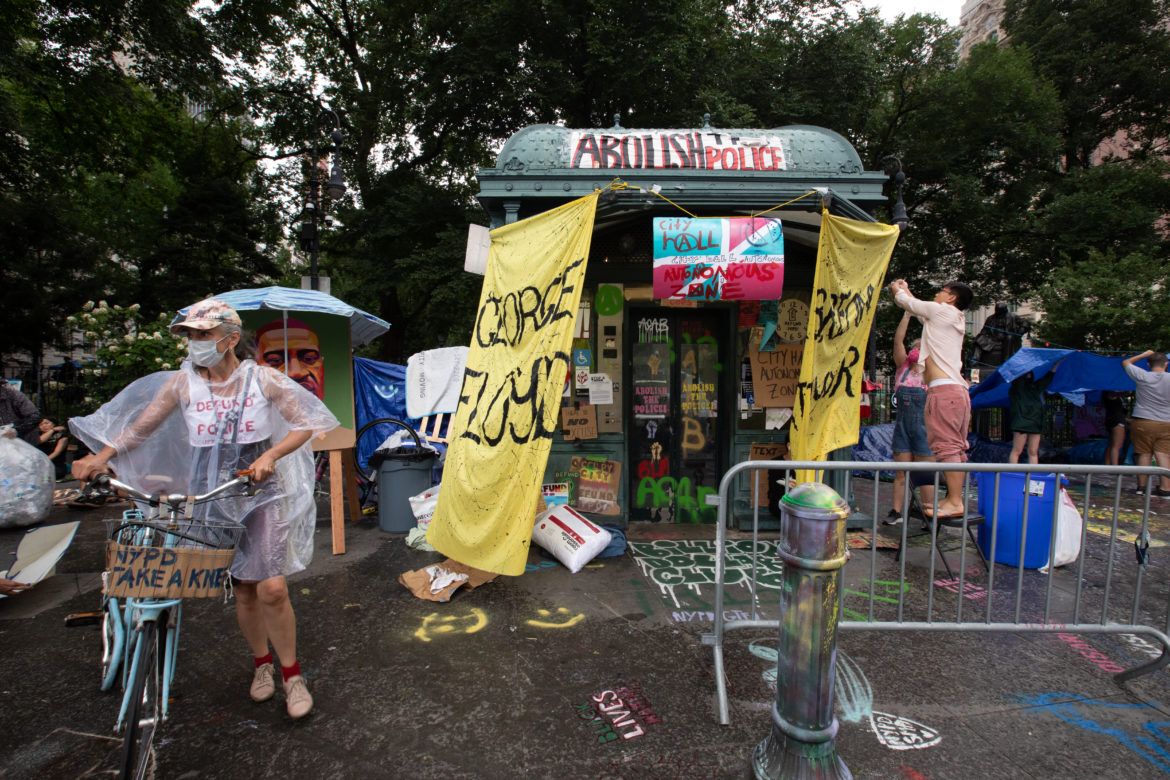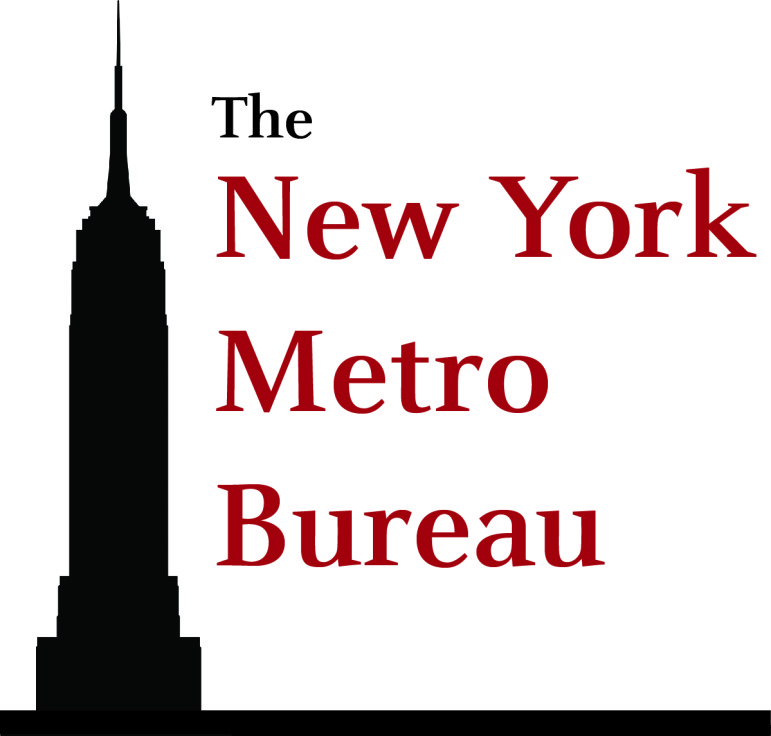
Marco Poggio
Anti-police protesters gather recently in New York.
![]() Watch video below
Watch video below
NEW YORK — After a slew of new laws were passed in the last month aimed at reining in aggressive policing tactics, police unions in New York City are now instructing officers to wait for a supervisor or call in a specialized unit if someone is resisting arrest.
In a July 1 newsletter sent to NYPD officers, the Police Benevolent Association (PBA) instructed officers to wait, saying that officers' jobs have “changed radically over the past few weeks,” citing new laws.
Frustrated by an apparent lack of guidance from the city on how officers should comply, the PBA is now demanding clear legal interpretations of how officers can comply with the new laws.
 “Our job as police officers is simply to carry out [the city’s] directives — and yet we have received no guidance and no training on how we are expected to do our job in this new environment,” the newsletter said.
“Our job as police officers is simply to carry out [the city’s] directives — and yet we have received no guidance and no training on how we are expected to do our job in this new environment,” the newsletter said.
Passed by city council on June 18 as part of a package of six NYPD reform bills, one law in particular which bans officers kneeling on individuals' backs is particularly controversial.
A veteran police officer in Brooklyn said they are fearful of what that law could do, particularly if an officer lacks physical strength to defend themselves.
“It is literally impossible to restrain an individual who is not complying with being handcuffed without placing them in the prone position and putting some type of force on their back in order to pull their hands behind their backs,” the officer said. “We not only risk serious injury to ourselves when and if that individual overtakes us, but we risk being arrested and losing our job, our pension and all of our assets.”
Inside the NYPD, senior police officials are blasting city leaders for passing new laws regarding conduct without any input from the department.
“Ignoring police department recommendations, a new city law makes it a misdemeanor for a police officer to restrain someone in a manner that restricts airflow or blood circulation by compressing the windpipe or carotid arteries,” an internal administrative bulletin read. “These acts are defined by the new law as criminal acts, even if an act was unintentional and no injury was sustained by the subject.”
As the NYPD grapples with how to respond to the new laws, officers on the street are being forced to reckon with existential questions about how they should do their jobs.
After spending years building bonds with a neighborhood, some police are now worried they will have to leave their residents to become victims of steadily increasing crime.
“We feel like the most violent communities had little to no say in how they want to police and there is no reason to risk everything we have personally worked for to serve a society telling us they don’t want it,” the veteran cop said.
Even with the new laws and directives from the department and unions, officers can still be seen frequently kneeling on the backs of suspects.
One such video posted across social media from early Tuesday morning shows multiple NYPD officers kneeling on the back and neck of a Black protester in front of City Hall.
The protester, identified in the video as Joseph Konnaris, 20, could be seen on the ground as nearly a dozen officers swarmed him on top of him.
As officers picked up Konnaris to take him away, he appeared unstable on his feet, at one point almost fainting as onlookers called for police to find him a paramedic.
In the video, officers appear unfazed by Konnaris’ condition, and do not appear to immediately call for an ambulance.
The tactics used by officers in the video are very similar to those recently outlawed by City Council, though it is unclear whether the officers involved will be charged under the new law.
A spokesperson for Manhattan District Attorney Cy Vance’s office declined to comment on whether they were investigating the incident.
Konnaris, who has been charged in Manhattan with attempted assault, second-degree harassment and disorderly conduct, will appear back in court in late September.
An attorney at Harlem Neighborhood Defenders representing Konnaris could not be reached for comment.
Konnaris was later identified on social media as a member of Warriors in the Garden, a group that says they are committed to peaceful protest as a way of ending racism.
For over a week, groups like Warriors in the Garden have been camped out at City Hall in anticipation of the budget passed on Tuesday, which contains deep cuts to the NYPD.
In recent weeks, protesters have taken out frustrations on city leaders who, they feel, are too willing to compromise on issues like reigning in police.
Despite bills like the kneeling ban, protestors are concerned that only reducing the size of the force will contribute to the change they are demanding.
Police remain concerned that without proper guidance from city leaders, they will continue to inadvertently violate the law.
Like many in the department, the officer in Brooklyn feels adamantly that having a range of options to respond to a situation is what keeps them, and the residents they serve, safe.
“Society is sending a very clear message to us that they do not want policing done. And it is heart-wrenching watching the communities we serve descend into chaos and people literally die as a direct consequence.”